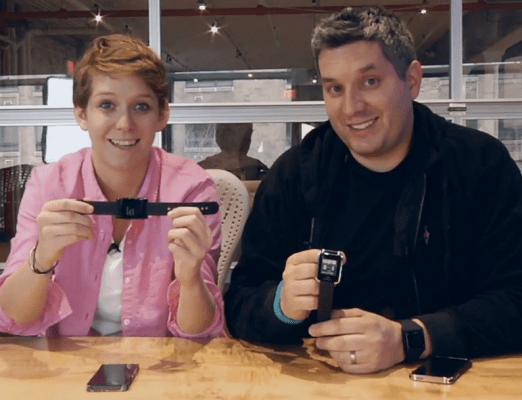As the race toward mainstream wearable computing heats up, watches are hot and smart watches are hotter.
In fact, word on the street is that Apple is working on a new smart watch that would integrate with its iCloud and iOS devices. But as it stands now, the majority of great “smart watches” available are coming from smaller companies.
We took a look at the Pebble, the Metawatch, and the Basis smart watches for an episode of Fly Or Die, to help you get a handle on which is best for you, if any at all.
To start, John and I both believe that the whole idea of a smart watch isn’t everything it’s cracked up to be. Sure, it’s nice to have a second channel for incoming information like texts and calls, but unfortunately the watch isn’t all that conducive to action (replies, answering calls, etc.).
Plus, watches are meant to be every day devices, and with the battery requirements of a smart watch (even a whole week, which is promised from the Pebble), remembering to plug in your wrist watch on a regular basis can grow tiring.
However, it’s hard to argue with the cool factor brought along with a smart watch. If, to you, that outweighs being not-quite-satisfied with the end-product, then we should move on to the compare and contrast section of this smart watch PSA.
The Pebble was a Kickstarter phenomena, thanks to its E-Paper display which gives the watch face a crisp, readable look at all times, even in direct sunlight. The Pebble also hooks into iOS and Android for email, text, and call notifications, and has customizable watch faces. If you find yourself focusing on the design aspect of a smart watch, you’re probably looking for the $150 Pebble.
The Metawatch comes out of Fossil, so it looks much more like a standard watch than either of the other options. It’s got a leather band and a metal/glass face. It feels heavier than the Pebble, but doesn’t have as crisp of a display. However, the Metawatch has an API that will let you send almost anything to the watch. This one’s for someone ready to get into the smart watch world but not ready to let go of the solid, classic build of a watch.
The Basis can’t really compete with the Pebble or the Metawatch, as it’s more of a quantified self device with a built-in clock. It measures motion, skin temperature, heart rate, calories burned, sleep patterns, and other physiological indicators, and connects to your phone via Bluetooth and dedicated apps. All in all, it’s a fine looking $200 device that’s much more suited to the fitness guru than the timepiece snob or the tech geek.
As for smart watches in general, John and I both believe they will have their time. We’re just not sure that time is today.
